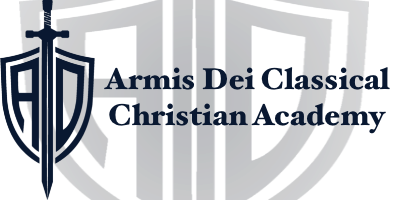Student Health and Safety Policies
Student Immunization Policy
All students attending ADCCA must be compliant with the Wisconsin Student Immunization Law. In order to avoid exclusion from attending classes, students will have until the 30th day of school to provide the appropriate documentation of immunization(s) or an up-to-date signed waiver.
Minor Injury and Illness Care
ADCCA will provide limited first aid in case of minor injuries (e.g. bandaids, ice, etc.) and provide comfort for minor illness. Over-the-counter medications will not be given without written parent/legal guardian consent. If the student is unable to return to the classroom to participate in classroom activities, the student will be sent home. A staff member of ADCCA will make every effort to contact a parent/legal guardian, designee, or emergency contact person to coordinate the timely pick up of the student.
Guidelines for Keeping Sick Children Home
To protect students from communicable illnesses, students infected with certain diseases are not allowed to come to school while contagious. If a parent suspects that his or her child has a communicable or contagious disease, the parent should contact the school so that other students who might have been exposed to the disease may be alerted according to the Department of State Health Services. Refer to the Wisconsin Childhood Communicable Diseases chart at the following link for detailed information of the above and other communicable diseases. https://www.dhs.wisconsin.gov/publications/p4/p44397.pdf
A student with any of the following symptoms must not attend school or will be sent home from school until the student is free from the symptoms listed below:
- Oral temperature of 100.4 degrees or greater. Students must be fever-free for 24 hours, without fever-reducing medication, i.e.; Tylenol, Motrin, Advil, before re-entry.
- Vomiting or diarrhea must be symptom-free for 24 hours, without medication, before re-entry.
- Unable to practice good hygiene with an excessive cough.
- Undetermined rash over any part of the body accompanied by fever. Any rash, of which the cause is unknown, should be checked by a physician before the student returns to school.
- Red, draining eyes, intense itching with signs and symptoms of secondary infection.
- The student is diagnosed with a bacterial infection. The student may not return to school until he/she has been on antibiotics for 24 hours.
- Open, draining lesions or wounds.
- Lice or nits on the shaft of the hair.
- The student is feeling too ill to participate in normal school activities including outdoor recess.
- For any infection, antibiotics must be taken for a minimum of 24 hours before re-admittance to school. A certificate of the attending physician attesting that the child does not currently have signs or symptoms of a communicable disease or to the disease’s non-communicability in a school setting; may be deemed necessary for re-entry into school.
Students should be symptom-free for 24 hours before returning to school.
Emergency Medical Treatment
In the unusual circumstance of a sudden or severe illness, injury, or other medical emergency, the school may act with prudence and call 911 for medical assistance, consultation, or transportation. EMS personnel will not administer any non-life-threatening medical treatment or transportation without a parent/guardian’s consent. Designees may not give consent for any medical treatment or transportation for a non-life-threatening condition unless a parent/legal guardian has given written consent to do so.
Implied Consent
Regarding minors, if a parent/legal guardian is not immediately available or cannot be reached in a timely manner to provide consent for treatment in a severe or life-threatening/grave situation and the delay in treatment would cause death or a serious loss of the student’s health, care may be provided without prior consent of a parent/legal guardian. It is implied that if the parent/guardian was present, they would consent to the care provided to save their student’s life or prevent serious loss.
As defined by the Wisconsin State Legislature Statute: 632.85, Implied Consent is assumed if a lack of immediate medical attention will likely result in any of the following:
- Serious jeopardy to the person’s health
- Serious impairment to the person’s bodily functions
- Serious dysfunction of one or more of the person’s body organs or parts
The determination of a life-threatening/grave or serious loss to the student’s health will be made with the help of the EMS personnel. Some examples of urgent conditions in which Implied Consent is used and treatment is given may be: anaphylactic shock, severe bleeding and respiratory or cardiac arrest. ADCCA is not liable for the costs of the EMS personnel medical assistance, consultation, or transportation. Such costs remain the responsibility of the parent/legal guardian.
Medical Needs
It is the parent’s responsibility to make the school aware of any allergies or medical information necessary for the health and safety of their child.
Personal Hygiene
All students of ADCCA must be independent in toileting. When an accident occurs, it is the responsibility of the parent to assist the child and to provide clean clothing. If there are repeated ‘accidents’, a meeting with the parents, teacher, and headmaster will be held to evaluate the situation. Appropriate action will be taken based on what is in the best interest of all students and the school.
Head Lice Policy
If a student is found to have live lice, his/her parent(s) will be notified and treatment will be recommended. The student will need to be picked up from school. Treatment needs to occur at home before the child can return to school the next day. The student will be checked the next day upon arrival at school. If found to have live lice, the student will need to be picked up again.
Weapons
No guns, knives, or weapons of any kind are allowed to be brought on the school grounds by students.
Security
A designated security person will be carrying a firearm at all times at our school.
